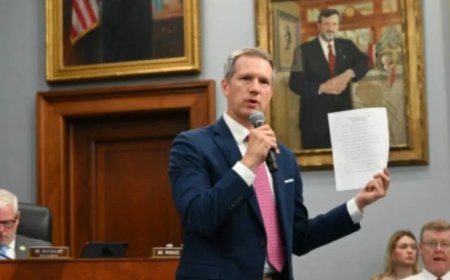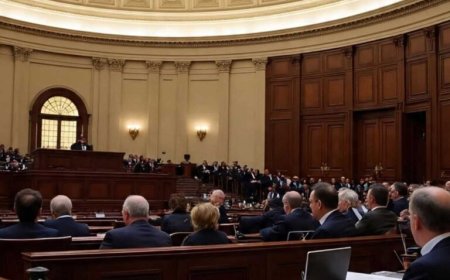Debate Erupts as Nigeria’s Defence Chief Proposes Border Fencing to Curb Insecurity

By: Israel Adeleke
OPEN TELEVISION NAIJA (OTN) News reports as gathered that a bold proposal by Nigeria’s Chief of Defence Staff (CDS), General Christopher Musa, to fence the country’s borders has ignited a sharp debate among security experts and retired military officers, with stakeholders divided over its feasibility, cost, and effectiveness in addressing Nigeria’s worsening security crisis.
Speaking at a recent security conference in Abuja, General Musa urged the federal government to consider constructing physical barriers along Nigeria’s porous borders with Benin, Niger, Chad, and Cameroon.
He argued that the measure is essential to curbing the persistent threat posed by cross-border terrorists, insurgents, and criminal syndicates.
Drawing on international precedents, Musa said, “Effective border management is indispensable,” citing the border fence between Pakistan and Afghanistan and the barrier between Saudi Arabia and Iraq as examples of how physical demarcations have aided national security efforts elsewhere.
OTN News observes that Nigeria, which has battled a relentless insurgency led by Boko Haram and the Islamic State West Africa Province (ISWAP) in the North-East for over 16 years, is now grappling with growing violence in the North-West and Middle-Belt.
Furthermore, recent years have seen the rise of armed herders, bandits, and militia groups, including the deadly Lakurawa militants.
While Musa’s proposal marks a significant and controversial shift in the national security strategy, responses have been mixed.
Retired Brigadier General Idada Ikponmwen, a former Provost Marshal of the Nigerian Army, expressed strong support for the idea, calling it an overdue step toward national security reform.
He said, “The problem of border porosity has been identified for years but left unaddressed. This administration’s willingness to publicly acknowledge and tackle it is encouraging."
He acknowledged the high cost of the project but maintained that it was achievable if corruption is curtailed and national resources are managed efficiently.
However, not all experts agree.
Dr. Joseph Ifedimma, Director of the Africa Counterterrorism and Security Academy in the UK, dismissed the fencing initiative as impractical, warning that it would likely become a “costly waste” and a breeding ground for corruption.
He highlighted the challenges posed by Nigeria’s expansive and rugged terrain, as well as the deep ethnic and cultural ties shared across its borders.
“You cannot fence Nigeria’s borders given the terrain and cultural links across West Africa. It would be a costly waste and could fuel corruption,” Dr. Ifedimma warned.
He instead called for improved regional cooperation, intelligence-sharing, and reforms in Nigeria’s counterterrorism strategy, including a Presidential Weekly Briefing on terrorism and stronger legislative oversight — modeled after the U.S. approach post-9/11.
Adding a tactical perspective, Brigadier General John Sunday Sura (rtd), speaking from Jos, acknowledged the potential benefits of border fencing but insisted that it must be accompanied by technological and human support systems to be truly effective.
“Fencing might delay terrorists but cannot stop them outright unless backed by technology and manpower on the ground,” he cautioned.
Sura advocated for a multi-layered approach involving drone surveillance, electrification of borders, dedicated patrol units, and a central command centre for real-time monitoring and response.
What's Your Reaction?
























































